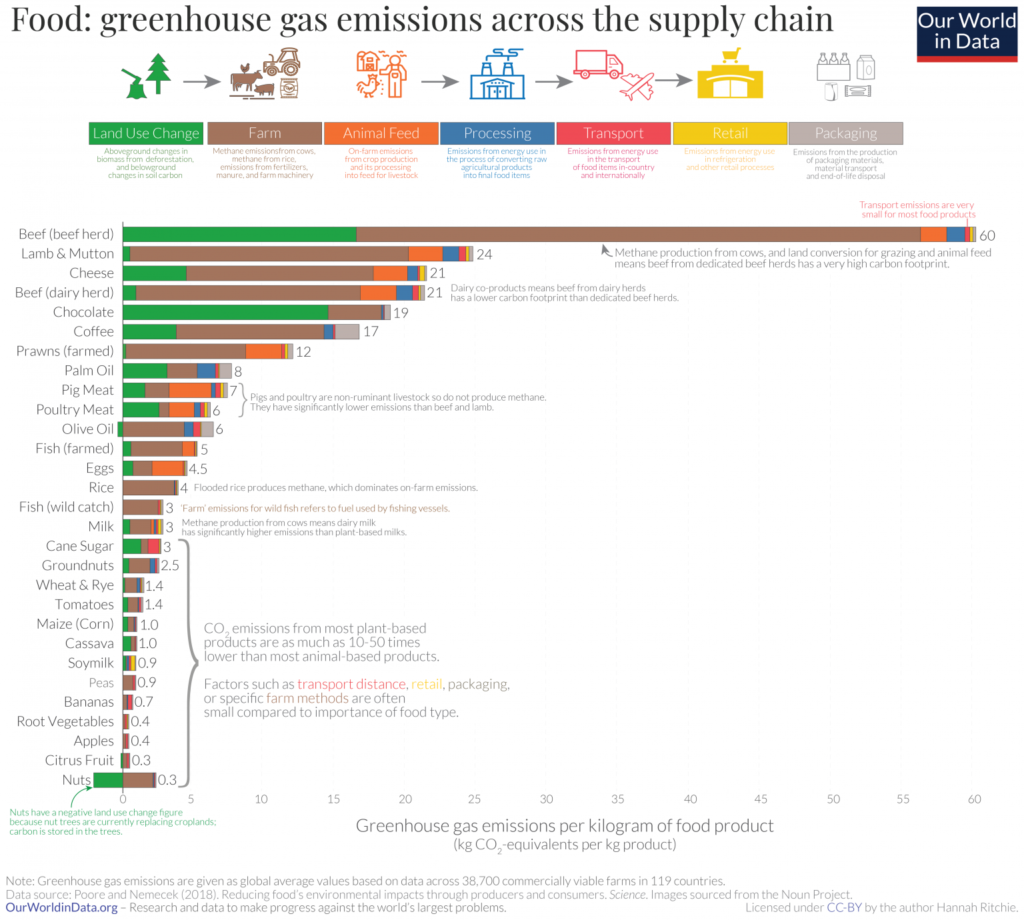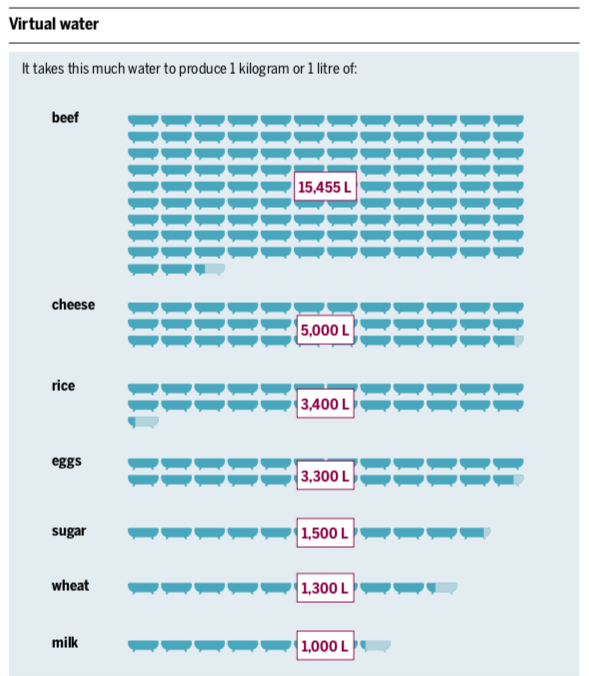There are many great benefits about moving to a plant-based diet.
First of all removing meat, dairy products and eggs from your diet will help to limit your impact on the environment as this industry is responsible for a big part of greenhouse gases emissions because of the deforestation due to this industry and methane emitted by the animals. It also has a huge impact on water ressources as significant quantities of water are used to grow the cereals that will feed the livestock. As a consequence of that, big patches of lands are deforested in order to create monocultures to feed all this livestock. There are also many great health benefits for not eating meat-based products which usually lead to cholesterol issues and higher risks of cancer.
As for fishes, due to over-fishing, the marine ecosystem is being severely disrupted. On top of that, fishnets that are lost or simply frequently abandoned, represents a huge portion of the oceans plastic pollution.
Finally, by refusing to consume animal-based products, you making the choice not to take part in the animal suffering.
Noriko Shindo, the co-founder and CEO of Veggino, who we had the chance to interview for our second episode of « Conversations with Green Changemakers in Japan », is sharing with us her top 5 tips to move to a plant-based diet.
Veggino is a bi-lingual non-for-profit website and group that aims to spread a plant-based lifestyle in Japan. If you want to know more about plant-based diet in Japan and find some cool recipes, do not hesitate to check their website or Instagram account.

1/ Be conscious of your impact and know how to best reduce it
Some people find it easy to go from an omnivorous diet to a vegan diet from one day to an other. However, for most people, it might seem a bit overwhelming.
If you fall into that category, don’t be scared, it will be a fun journey. Start by setting yourself some challenges and reducing your meat intake, as this has the most impact on the environment. It can be “Vegan Monday”, no meat in the evenings, no meat at home etc.
While you should aim to remove all animal-based products from your diet, there are some which have a lot more impact than others, which you could choose to focus on as a first step.
In terms of greenhouse gas emissions (GHG) as well as water usage, beef is definitely the one to drop off your diet. You can find below more details on the GHG and water impact of different foods.
If you want to be sure that the products you are buying do not contain animal-base ingredients, you can use the Facebook group Is it Vegan? (Japan) to check with the community. In most cases, when you find エキス (extract) written on a food packaging, it indicates that the ingredients are animal derived.
Bear in mind that Japanese government doesn’t make it mandatory for food companies to list all their ingredients, so some processed foods could still have animal-based ingredients while them not being listed on the ingredient list. The best way to avoid this happening is to stick to a healthy whole foods diet and avoid processed food.




